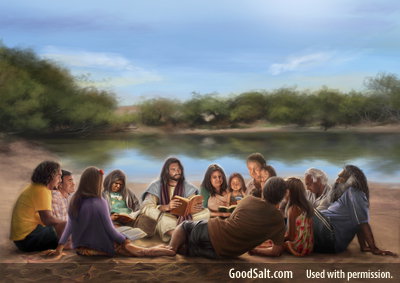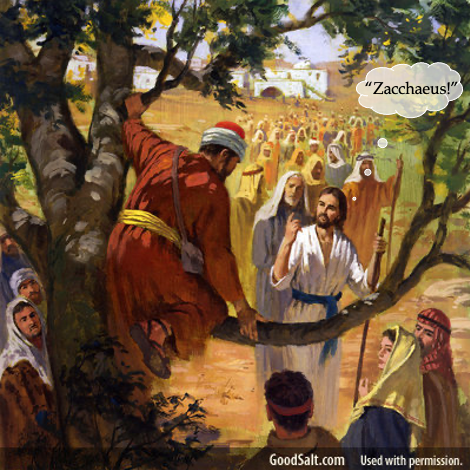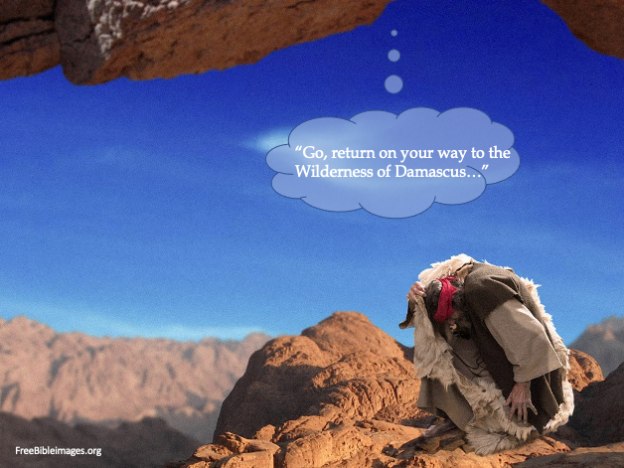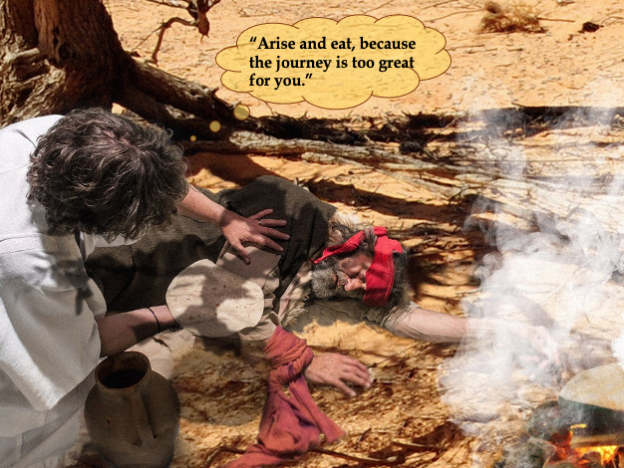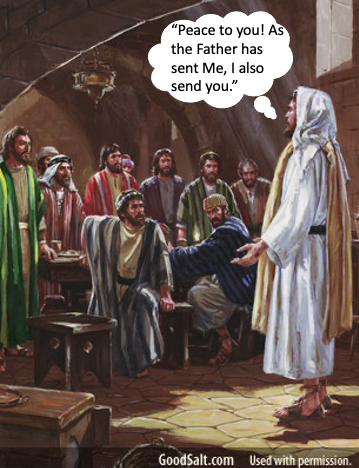“3 That which we have seen and heard we declare to you, that you also may have fellowship with us; and truly our fellowship is with the Father and with His Son Jesus Christ. 4 And these things we write to you that our joy may be full.” I John 1:3-4
The next two verses in I John contain the apostle John’s purpose for writing this book which is fellowship or closeness with God and other believers (1:3-4). 1 Some will argue that I John 5:13 is the purpose statement for John’s epistle since the apostle’s purpose statement in his gospel was near the end of the gospel of John (John 20:31).They conclude that I John was written to provide tests for professing believers in Jesus so they could know for sure they have eternal life. 2
But this view fails to understand that “there are five purpose statements in I John (1:3, 4; 2:1, 26; 5:13) plus ten imperatives (2:15, 24, 27, 28; 3:1, 7, 13; 4:1 [twice]; 5:21), any of which could possibly provide John’s purpose for writing.” 3 First John 1:3-4 provides the most comprehensive primary and secondary purposes in writing this epistle. 4
Wilkins notes that the words, “These things” in I John 5:13 do not refer to the entire book of I John, but to the verses immediately preceding it (5:6-12), observing that this near reference is consistent with John’s style throughout his epistle: 5
- The statement “these things we write to you” (1:4) refers to what was just stated in verses 1:1-3.
- The words, “these things I write to you, so that you may not sin” (2:1) refer to the teaching on sin in 1:5-10.
- The statement, “These things I have written to you concerning those who try to deceive you” (2:26) refers to the preceding discussion about antichrists (2:18-25).
To summarize the first two verses of I John: As the magnetic power of Jesus’ love draws us closer to Him (1:1), we are more motivated to tell others about Him (1:2). And as we proclaim Christ to others, we find ourselves drawn even closer to Him so that our fellowship or intimacy with Him deepens even more.
This is the purpose of I John: “That which we have seen and heard we declare to you, that you also may have fellowship with us; and truly our fellowship is with the Father and with His Son Jesus Christ.” (I John 1:3). The “we” and “us” in this verse refer to the apostle John and the eleven other apostles who were eyewitnesses (“we have seen and heard”) to Jesus in the first century. The “you” represents John’s readers 6 who had not known Jesus in the flesh as John and the other apostles had. 7 You and I cannot “look upon” or “handle” (1:1) the Lord Jesus Christ physically as did the first-century apostles until we are in Jesus’ presence in heaven 8 (cf. I John 3:2; Revelation 4:1-5:14; 7:9-17).
The reason the apostle John and other apostles “declare” what they had “seen and heard” regarding the Lord Jesus is so their readers (“you”) “also may have fellowship with” them. The Greek word for “fellowship” (koinōnia) means a “close association involving mutual interests and sharing, … close relationship.” 9 John wants his readers to have close fellowship with him and the other apostolic eyewitnesses to Jesus Christ. 10 This is known as horizontal fellowship whereby believers in Jesus share what they have in common with other believers in Christ. 11
But John takes this concept of fellowship deeper. Ultimately, the purpose of fellowship with the apostolic eyewitnesses is to have fellowship with God the Father and God the Son. The apostle writes, “and truly our fellowship is with the Father and with His Son Jesus Christ.” (I John 1:3b). John longs for his readers to enjoy the intimate fellowship or closeness with God that the apostolic eyewitnesses enjoyed. 12
It is very important to observe that John repeatedly refers to his readers with terms that clearly indicate he considered them to be genuine Christians – “little children” (2:1, 12, 13b, 18, 28; 3:7, 18; 4:4; 5:21), “brethren” (2:7; 3:13), “I write to you, little children, because your sins are forgiven you for His name’s sake” (2:12; cf. 2:13-14), “you have an anointing from the Holy One, and you know all things” (2:20; cf. 2:21, 27), “beloved” (3:2, 21; 4:1, 7, 11 ), and “These things I have written to you who believe in the name of the Son of God” (5:13). Obviously, John did not intend his epistle to be used to convert his readers or assure them of their salvation because he knew they were already saved. What his readers needed was “fellowship” or closeness with the apostolic circle and with God Himself.
It is quite possible that the “antichrists” or false teachers were telling John’s readers that Jesus was not God’s promised Son (2:22-23), and they did not have eternal life simply by believing in Christ (2:25-26; cf. 5:9-13). 13 To doubt God’s promise of eternal life through believing in Jesus would undermine their assurance that they were God’s children. This would make them more susceptible to the influences of the world (2:15-16) and these false teachers (2:19-23). For if they doubted they were God’s children, then they would be more prone to act like non-Christians (cf. Proverbs 23:7a) which would jeopardize their fellowship with the apostles and with God Himself.
Notice I did not say this would jeopardize their salvation. As believers in Jesus, they could never lose the gift of eternal life which God had freely given them (cf. John 3:16; 4:10-14; 6:35-40; 10:28-29; Romans 6:23b; 11:29; Ephesians 2:8-9). But they could lose their “fellowship” or closeness with God which depended on walking in the light (1:7), confessing their sins (1:9), keeping God’s commandments (2:3-5; 3:24), abiding in Christ (2:6, 24, 27-28), loving one another (2:9-11; 3:11-23; 4:7-5:3), hating the world (2:15-17), acknowledging Jesus is God’s Son (2:23; 4:2-3, 4:15), practicing righteousness (2:29-3:10), listening to and obeying apostolic teaching (4:6), and avoiding idolatry (5:21).
Don’t miss the connection in verse 3 between fellowship with the apostolic eyewitnesses and fellowship with God Himself. John is saying he is part of a circle (the apostles) so intimate with God that if one has fellowship with his circle, one also has fellowship with God the Father and with His Son. To refuse to hear the apostles is to refuse to hear the Lord Himself (cf. 4:6). We cannot enjoy fellowship with God apart from the apostles who experienced the Lord Jesus Christ firsthand (1:1-3). Unfortunately, our modern world has lost respect for this apostolic authority. Skepticism and unbelief run rampant today. Our modern world thinks it knows more than “ignorant and unlearned men in the first century.” People who ignore what the apostles have to say about Jesus often create their own false teaching and spirituality. 14
This is what Muhammed, the founder of Islam did when he created the Quran. For example, instead of embracing what the apostolic eyewitnesses taught about the Lord Jesus Christ’s death on the cross (Matthew 27:31-66; Mark 15:21-47; John 19:16-42; I Corinthians 15:1-8), Muhammed listened to the beliefs and traditions of other faiths he had been exposed to while traveling with his uncle Talib on caravan journeys. 15 Some of those beliefs included second-century false teachings which denied Jesus was crucified on the cross, and therefore did not rise from the dead. 16
But how can we in the twenty-first century have fellowship with the apostolic eyewitnesses so we can enjoy the fellowship they had with Jesus? We do this through their written word as recorded in the New Testament. As we take the truth of the Bible and apply it to our lives through the power of the Holy Spirit, we can experience deeper fellowship and spiritual intimacy with God. 17
Evans illustrates this when he writes, “Cities establish high occupancy vehicle (HOV) lanes to prevent having too many cars clogging up the interstates. In a sense, they want you to be in fellowship while traveling to work. God wants you traveling a HOV lane in life, and He also wants to be your companion in the car.” 18
The reason the apostle John writes about having fellowship with the apostolic eyewitnesses and ultimately with God Himself is so he and the other apostles may experience the fullness of joy. “And these things we write to you that our joy may be full.” (I John 1:4). 19 If John’s readers were to experience greater fellowship or intimacy with John (and the other apostles) and ultimately with God Himself, then he and the other apostles would experience greater joy. The apostles’ hearts were so much like Christ’s that their own joy was connected to the spiritual well-being of those to whom they ministered. 20
This is similar to what John wrote in 3 John 4: “I have no greater joy than to hear that my children are walking in the truth.” Nothing would give the apostle John more joy than seeing his readers walk in the truth of God’s Word so they could experience intimate fellowship with Christ.
Do we share Jesus’ concern for His people so that our own joy is bound up in the spiritual well-being of those we minister to? If not, we would be wise to ask the Lord Jesus to give us a heart for the spiritual development of other believers.
It is important to understand that the degree of intimacy we enjoy with Christ on the new earth may be directly proportional to the degree of intimacy we enjoy with Him now on the old earth. 21 For example, the ascended and glorified Lord Jesus says, “He who has an ear, let him hear what the Spirit says to the churches. To him who overcomes I will give some of the hidden manna to eat. And I will give him a white stone, and on the stone a new name written which no one knows except him who receives it.” (Revelation 2:17). Jesus motivates His followers on earth to live victoriously (“him who overcomes”) by promising a special intimacy 22 with Him in eternity which includes eating “the hidden manna” and receiving “a white stone” on which is “a new name written” on it. Eating hidden manna with Christ and receiving a new name from Him are both expressions of deeper love and spiritual intimacy with Him.
But the primary focus of John in his epistle is the greater “joy” we can have before eternity (1:3-4). Under the guiding power of the Holy Spirit (2 Timothy 3:16; 2 Peter 1:21), the apostle John has written this love letter from God so we may have a fullness of joy. After all, don’t love letters have a unique way of bringing us joy!?! 23
This reminds me of my first year of seminary when I would write to my girlfriend who was serving as a missionary in Costa Rica. Every day I would write in an aerogram about seminary life and how much I missed her. I would then mail the aerogram once a week, eagerly awaiting her reply. Her written responses were my lifeline during that first year of seminary. I couldn’t wait to check my mailbox to see if a letter from her was inside. When I received those letters, I would read them repeatedly. When I read how much she missed me and loved me, it restored my joy in view of her love for me.
This is one very important reason God has given us the book of I John. This “love letter” is in the Bible to restore our joy considering how much God loves us. John knows a lot more about God’s love than you and I do. He is known as the disciple “whom Jesus loved” (John 13:23; 19:26; 20:2; 21:7, 20). Perhaps this is why he has written so much about the Lord’s love in his gospel and epistles.
Anderson puts it well: “When the fires of our devotion to Christ are burning low, or we begin to forget just how much He really loves us, we can come running back to His inspired Word, His ‘love letters,’ and experience a fresh state of joy as we read again the old, old story of His love for you and me.” 24
Anderson shares the story of Christ’s love for us involving a little girl who had a great love for her dolls. He writes, “A man once came to her house to visit her mother and father. Her dad was not home from work yet, but her mother went into the kitchen to put together some refreshments while they waited for her husband to arrive. The little girl saw her chance. She coyly came up to the stranger as he waited in the living room and asked him if he liked dollies. Wanting to be polite, he assured her he did. ‘Would you like to see my dollies?’ the little girl asked. Not wanting to discourage her, the stranger said, ‘Of course.’
“So, the little girl began bringing out her collection of dolls. It was quite large and surrounded the coffee table. ‘Now which of these is your favorite?’ asked the visitor. ‘Are you sure you like dollies?’ queried the little girl. ‘Oh, yes,’ he confirmed. So, the little girl rushed back to her room and returned clutching an old Raggedy Ann dolly. She held it close and patted its head. The visitor was nonplused. This doll wasn’t nearly as impressive as the others. It had lost one leg; half its hair had fallen out; its belly button was missing, as well as part of an arm below the elbow. With astonishment in his face he asked, ‘But why is this your favorite dolly?’
“The little girl looked at him shyly and then back at Raggedy Ann. Then, holding the tattered doll very close, she said, ‘This is my favorite dolly… because if I didn’t love her… nobody would.’” 25
All of us are like that Raggedy Ann dolly. There is nothing about us that is worthy of God’s love. We are all ungodly sinners (no belly button, one arm and leg missing, hair torn out), yet God still demonstrated His love for us in that Christ died for us (Romans 5:8). That is true love. And that is what can restore our joy no matter how unlovable or unwanted we may see ourselves. The apostle John knows this and that is one reason he has written this love letter.
Prayer: Lord Jesus, if we are honest with ourselves and with You, we would have to admit there have been times in our lives when we viewed ourselves to be like that Raggedy Ann dolly – unlovable, unwanted, and unworthy of love. Yet Your love letter, the Bible, tells us how much You love us and delight in being with us. We thank You for the apostle John who wrote his epistle so we might experience an abundance of joy as we enter the deep and pervasive fellowship or spiritual intimacy that he and the other apostles had with You. May Your magnetic love draw us closer and closer to You so we may grow in our desire to tell others about You and Your love for them. Lead us to those who need to hear of Your radical love for them as demonstrated through Your death and resurrection so all who believe in You may have everlasting life. Give us Your heart for the spiritual well-being of others so we may see an even greater movement of Your Spirit in Your church and around the world. Thank You our Lord and our God for hearing our prayer. In Your mighty name we pray, Lord Jesus. Amen.
ENDNOTES:
1. Tom Constable, Notes on I John, 2022 Edition, pg. 7; David R. Anderson, Maximum Joy: I John – Relationship or Fellowship? (Grace Theology Press, 2013 Kindle Edition), pg. 28; Zane C. Hodges, The Bible Knowledge Commentary Epistles and Prophecy, Editors John F. Walvoord and Roy B. Zuck (David C. Cook, 2018 Kindle Edition), Kindle Locations 3367 to 3473; Robert Wilkin; J. Bond; Gary Derickson; Brad Doskocil; Zane Hodges; Dwight Hunt; Shawn Leach; The Grace New Testament Commentary: Revised Edition (Grace Evangelical Society, Kindle Edition, 2019), pg. 589; Tony Evans, CSB Bibles by Holman, The Tony Evans Bible Commentary (B & H Publishing Group, Kindle Edition, 2019), pp. 2329-2333.
2. Anderson, pg. 15 cites cites John MacArthur, Jr., Saved without a Doubt (Colorado Springs: Cook Communications, 1992), pp. 67-91; Constable, pg. 46 cites James Montgomery Boice, The Epistles of John (Grand Rapids: Zondervan Publishing House, 1979); Raymond Brown, The Epistles of John, Anchor Bible series(Garden City, N.Y.: Doubleday, 1982); F.F. Bruce, The Epistles of John (London: Pickering & Inglis Ltd., 1970; reprint ed., Grand Rapids: Wm. B. Eerdmans Publishing Co., 1986); John Calvin, The First Epistle of John, Calvin’s New Testament Commentaries series, Translated by T. H. L. Parker. Reprint ed. (Grand Rapids: Wm. B. Eerdmans Publishing Co., 1959-61); John F. MacArthur Jr., The Gospel according to Jesus (Grand Rapids: Zondervan Publishing House, 1988); John R. W. Stott, Basic Introduction to the New Testament, 1st American ed. (Grand Rapids: Wm. B. Eerdmans Publishing Co., 1964); Brooke Foss Westcott, The Epistles of St. John (1883. Reprint ed. England: Marcham Manor Press, 1966); and Warren W. Wiersbe, The Bible Exposition Commentary, 2 vols. (Wheaton: Scripture Press Publications, Victor Books, 1989).
3. Constable, pg. 17.
4. Ibid., cites Robert W. Yarbrough, 1-3 John, Baker Exegetical Commentary on the New Testament series(Grand Rapids: Baker Academic, 2008), pg. 46; Stephen S. Smalley, 1, 2, 3 John, Word Biblical Commentary series (Waco: Word Books, 1984), pg. 15; Gary W Derickson, “What is the Message of I John?” Bibliotheca Sacra 1 50:597 (January-March 1993), pp. 89-105.
5. Wilkin, The Grace New Testament Commentary, pg. 603; cf. Robert N. Wilkin, “‘Assurance: That You May Know’ (1 John 5:11-13a),” Grace Evangelical Society News 5:12 (December 1990), pp. 2, 4; Anderson, pg. 241; Hodges, Kindle Location 4070.
6. Anderson, pg. 28.
7. Constable, pg.14.
8. Wilkin, The Grace New Testament Commentary, pg. 589.
9. Walter Bauer, A Greek-English Lexicon of the New Testament and Other Early Christian Literature: Third Edition (BDAG) revised and edited by Frederick William Danker (Chicago: University of Chicago Press, 2000 Kindle Edition), pg. 552.
10. Hodges, Kindle Locations 3460 to 3465.
11. Anderson, pg. 28.
12. Constable, pg. 14.
13. Hodges, Kindle Locations 3465 to 3469.
14. Evans, pg. 2332.
15. Daniel Janosik, THE GUIDE TO ANSWERING ISLAM: What Every Christian Needs to Know About Islam and the Rise of Radical Islam (Cambridge, OH: Christian Publishing House, 2019 Kindle Edition), pg. 15.
16. The Quran denies that Jesus died by crucifixion (4.157) which is the same teaching of a second-century gnostic false teacher named Basilides whose school of thought lasted for centuries after his death. (See Nabeel Qureshi, No God but One: Allah or Jesus? [Grand Rapids: Zondervan, 2016 Kindle Edition], pp. 179-180 cites Irenaeus of Lyons, “Irenaeus against Heresies,” in The Ante-Nicene Fathers: The Apostolic Fathers with Justin Martyr and Irenaeus, ed. Alexander Roberts, James Donaldson, and A. Cleveland Coxe, vol. 1, [Buffalo: Christian Literature Company, 1885], pg. 349).
17. Evans, pg. 2332.
18. Ibid.
19. The majority of Greek manuscripts have the word translated “our” (hēmōn) in place of the word “your” (humōn) in the text.
20. Hodges, Kindle Location 3473.
21. Anderson, pg. 30.
22. Joseph Dillow, Final Destiny: The Future Reign of The Servant Kings: Fourth Revised Edition (Grace Theology Press, 2018 Kindle Edition), pp. 959-960.
23. Anderson, pg. 30.
24. Ibid., pg. 31. 25. Ibid., pp. 31-32.

